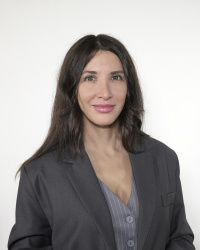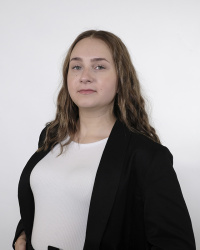Contacts and FAQ
How to find us
International Cooperation office
183038, Murmansk, ulitsa Kapitana Egorova 15, office 302, Russia
183010, Russia, Murmansk, ulitsa Sovetskaya, 14, building «C»
Admissions
183038, Murmansk, ulitsa Kapitana Egorova 16, office 116, Russia
How is full-time education different from part-time education? What are the benefits of each form?
Full-time learning implies physical presence of a student in a classroom and personal contact with the teacher and fellow students (unless remote communication option is organized through videoconferencing).
| Advantages | Disadvantages |
|---|---|
|
|
Part-time learning does not imply constant physical presence of a student at a university, which means maximum self-education self-learning. Lectures are usually organized either online or in face-to-face sessions 1-2 times a year. The teacher sets the study vector and provides information on where to draw knowledge rather than delivers instruction.
| Advantages | Disadvantages |
|---|---|
|
|
These terms are legible for full programs only — exchange studies and short-term courses do not apply here.
What is «Tuition-free» and «Tuition paid» studies
The “Tuition-free” is understood as a format when a student does not need to pay for studying at a university — it is paid by the Russian government. However, this does not relieve the student of the need to pay for visa/insurance/travel/personal and living expenses, incl. in dormitory.
The "Tuition-paid" is the format when students (or their legal representatives / parents / friends, etc.) pay for the studies.
These terms are legible for full programs only — exchange studies and short-term courses do not apply here.
Can foreigners study for free in Russia?
They can! Applicants from some particular countries can get tuition-free (state-funded) places on a par with Russian citizens (subject to certain conditions). Citizens of other countries can also receive a “Quota” for tuition-free studies, or go through the procedure for recognizing themselves as “compatriots living abroad”. See this page for more info.
All other categories of foreign citizens that do not fall under the described parameters can study in Russia on a paid basis (tuition-paid: see above).
Is it necessary to somehow legalize documents about previous foreign education for studying at MASU?
Yes, the document must be translated and notarized. Moreover, if there is no agreement between your country and the Russian Federation on the mutual recognition of documents on education, then you will need to contact Main State Center for Education Evaluation for legalization and nostrification of the documents. Beforehand, you can pass an express check or contact us by e-mail priem@masu.edu.ru or international@masu.edu.ru
What migration status is needed for studies in Russia?
This is a key question for foreign citizens wishing to study in Russia on a tuition-free basis full-time.
Temporary stay (vremennoe prebyvanie) – is a format when a foreigner holds a Russian visa (or does not need it according to inter-governmental agreements, but still has no residence or temporary residence permit). Needs migration registration at the place of stay.
Temporary residence permit (razreshenie na vremennoe prebyvanie — RVP) — a document, allowin a foreigner to work and live in Russia for 3 years.
Residence permit (vid na zhitelstvo) — a document issued to a foreign citizen confirming the right for permanent residence in Russia, as well as the right to freely exit from the Russian Federation and come back. Issued after RVP. Gives more opportunities for tuition-free studies in Russia.
Can foreigners combine work and studies in Russia?
Yes, in case of studying full-time (see above). In addition, foreign citizens legally working in the Russian Federation can also study at MASU. Part-time studies do not entitle students to work in the absence of a special permit or work visa.
Is Russian higher education recognized in other countries?
It is recognized in whole or in part, depending on existing international treaties concluded between the Russian Federation and a specific foreign state. In the absence of such an agreement, the employer or foreign educational organization may require you to undergo the procedure of apostille and/or recognition/translation of the diploma received at MASU. Quite often, the European Diploma Supplement with ECTS credits is enough for foreign organizations, which is issued to all foreign students of MASU free of charge if needed (provided that the foreign student did not acquire Russian citizenship before graduation from MASU).
Where do foreign students live if studying at MASU?
Students from other cities and countries live in MASU dormitories (see details here) or rent accommodation on their own. Please note that there are certain migration requirements associated with the stay of international students in the Russian Federation (see more details here).
Is it easier to obtain citizenship of the Russian Federation, having a diploma from MASU?
MASU alumni can apply for Russian citizenship in a simplified format if they worked in Russia for a year after graduation.
What should I bring from home when I come to MASU for studies?
See more details here
Does MASU help graduates to get employed?
MASU cooperates with large companies of the Murmansk region and, during the course of study, offers students various vacancies depending on their profile and level of training.




